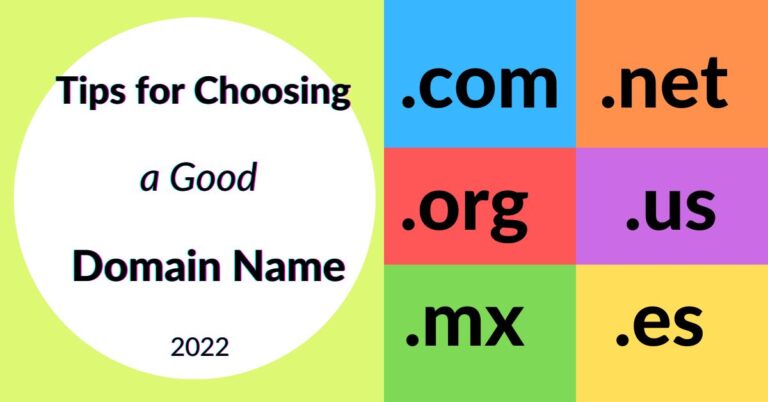Why SEO is Important for Business and How to Implement It

As a business owner, you’ve probably heard of SEO. In this article, I’ll go over why SEO is important for business and how you can implement it to improve your sales.
What is SEO?
SEO stands for Search Engine Optimization, and it’s the process of optimizing your website for search engines like Google, Yahoo, and Bing.
Doing so will earn higher web traffic levels and improve your visibility online.
Why is SEO Important for Your Business?
In today’s digital age, more and more people are using the internet to find products and services they need.
In fact, over 3.7 billion searches are conducted on Google every single day!
That’s a lot of potential customers that you could be reaching if your website is optimized for SEO.
SEO is also essential for helping you earn higher click-through rates (CTRs), which can lead to more sales and conversions for your business.
Studies have shown that websites that appear on the first page of Google searches have a CTR of nearly 30%, while those on the second page have a CTR of just 12%.
So, if you want your website to be seen by as many people as possible and earn higher CTRs.
And, ultimately, more sales, then you need to ensure it’s optimized for SEO.
Below, I’ll provide a few tips on how to do just that.
Disclosure: This page contains affiliate links, meaning we get a commission if you use those links. – You can read our full disclosure in our privacy policy.
8 Tips For Optimizing Your Website For SEO
1. Do Keyword Research
In order to optimize your website for SEO, you need to know which keywords to target.
Start by brainstorming a list of potential keywords or phrases related to your business.
Then use a tool like Google Keyword Planner or Ubersuggest Keyword Tool to see how often these terms are being searched for online.
Once you’ve determined which keywords are most popular, start incorporating them into your website content (more on this below).
2. Use Keyword-rich Titles and Descriptions
One of the most important aspects of SEO is choosing the right keywords.
These are the words and phrases that people use when they’re searching for something on the internet.
If you want your website to appear in search results, you need to ensure that your titles and descriptions contain the keywords people are searching for.
3. Create High-quality Content
Another important tip for optimizing your website for SEO is ensuring all your content is high-quality.
This means writing original content that is informative, well-written, and relevant to your target audience.
It also means including enough keywords throughout your text so that Google can easily understand what your content is about and index it accordingly.
However, don’t go overboard with the keywords – Google will penalize you if it thinks you’re stuffing your content with too many of them.
Instead, focus on making your content interesting and informative, with the keywords as an added bonus.
4. Optimize Your Website for Mobile Devices
More and more people are using their smartphones and tablets to browse the internet.
If your website isn’t optimized for mobile devices, you’re missing out on a lot of potential traffic.
Therefore, make sure your website is mobile-responsive and easy to use on smaller screens.
5. Make Sure Your Website Loads Quickly
Nobody likes waiting for a slow website to load.
If your site takes too long to load, people will just leave and go elsewhere.
Ensure your images are optimized and you’re not using too many heavy plugins or scripts.
A fast-loading website is essential for good SEO.
6. Use Social Media to Promote Your Website
Social media is a great way to drive traffic to your website.
When you post links to your website on social media, you’re giving people an easy way to find your site.
Just make sure you’re posting quality content so that people will want to click on the link.
7. Build Backlinks
Backlinks are essentially links from other websites pointing back to yours.
They act as votes of confidence in the eyes of Google, telling the search engine that your website is popular and trustworthy.
The more backlinks you have pointing back to your site, the higher quality will appear in Google’s eyes – and the higher up in the search results will appear as a result.
There are a few different ways to build backlinks, but one of the easiest ways is to simply reach out to other bloggers or businesses in your industry.
And simply ask them if they would be interested in linking back to one of your blog posts or pages on their own site.
Most people will be happy to oblige if they think it could be beneficial for their own readership!
8. Use Google Analytics to Track Your Progress
Google Analytics is a free tool that allows you to track how much traffic your website is getting.
It will also track where the traffic it’s coming from.
This information is essential for understanding what’s working and what isn’t when it comes to your SEO efforts.
Tracking your progress will help you make adjustments as needed to continue improving your results over time.
Conclusion
These are just a few tips for optimizing your website for SEO purposes, but following them can make a difference in your online site’s visibility.
For people to find your business online, it’s important to make sure your website is optimized for search engine optimization (SEO).
Focus on keyword research, creating high-quality content, optimizing your website for mobile devices, and fast loading.
I believe that out of all the tips listed above, those are the most important.
But of course, all of them are essential; therefore, I suggest you try to implement them on your website to improve your ranking on the search engines.
And remember, SEO is an ongoing process, so don’t get discouraged if you don’t see results overnight—keep at it.
Eventually, you’ll start to see the fruits of your labor!
I hope this post has helped you!






